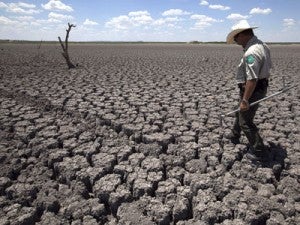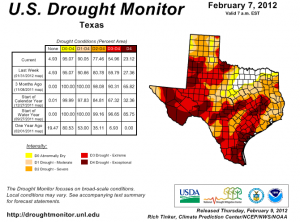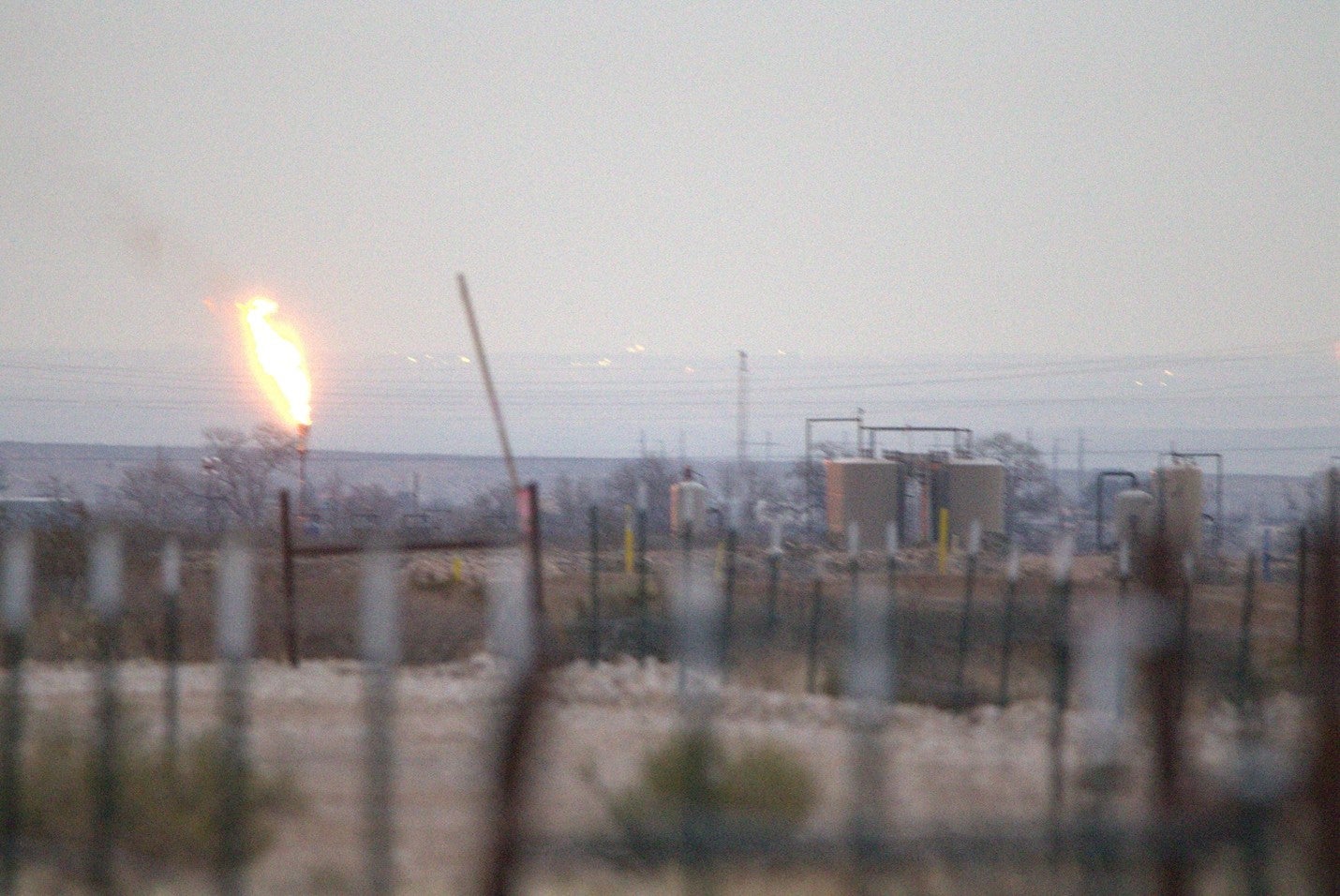A Texas Coalition for Water, Energy and Economic Security Briefing: The Drought Threatens Texas’ Power

This commentary was originally posted on the Texas Clean Air Matters Blog.
On Thursday, February 2, the Texas Coalition for Water, Energy and Economic Security (TCWEES), which includes Environmental Defense Fund and other stakeholders in the environmental and business community, held a legislative briefing discussing the impact that the drought could have on power in Texas. This is the first of a series of TCWEES-hosted, educational events focused on energy efficiency that will be held around the state during the legislative interim.
The speakers at the briefing included:
- Dr. John Nielson-Gammon, Texas State Climatologist and Regents Professor of Atmospheric Science at Texas A&M University
- Dr. Carey King, Research Associate at the Center for International Energy and Environmental Policy at the Bureau of Economic Geology at University of Texas at Austin
- Mark Armentrout, President and CEO of Texas Technology Partners; former chair of ERCOT
- Cris Eugster, EVP and Chief Sustainability Officer for CPS Energy (San Antonio)
- Kevin Tuerff, Principal and President of EnviroMedia
In 2011, Texas experienced record heat and drought and the electric grid was stressed as a result. Though the Electric Reliability Council of Texas (ERCOT) took a proactive approach to dealing with the crisis, the potential still remains for economic loss caused by electric generation outages related to heat and drought. The drought is predicted to continue and action is needed to protect Texas’ power and economic viability. Given that it can provide the same amount of service while using less electricity, energy efficiency should be a significant part of the solution. Energy efficiency reduces waste, electric bills, emissions and water use needed for electric generation.
During the briefing, Dr. John Nielson-Gammon brought up the recent rain in Texas. He said that while the rain is great for taking people’s mind off the drought, it is not useful for setting us up for the summer of 2012 because it’s too little too late for our current situation. He added that climate change is an important enough factor in the drought that it must be considered in long-term water planning.

Texas State Representative Donna Howard was in attendance and she posed a question about better coordination between state agencies. Though there is some coordination, there is no actual coordinated plan among and between state agencies to be thoughtful about planning for Texas’ future water and energy needs. Dr. Carey King pointed out that both the Texas Water and Development Board and the Texas Commission on Environmental Quality work on water issues, but it isn’t clear how power plants fit into water priorities. He stated that we don’t have an answer and that we need a better understanding of the breadth and depth of water issues.
The key takeaways from this briefing are that water and power are inextricably linked and the stress that the drought has had, and will continue to have, on our ecosystems and electric systems is a serious concern. This is not something that will go away as the climate will continue to change. Cleaner energy sources and greater energy efficiency will cut carbon pollution and help stabilize the climate, protecting our land, water, air and health. We need to find solutions now.











